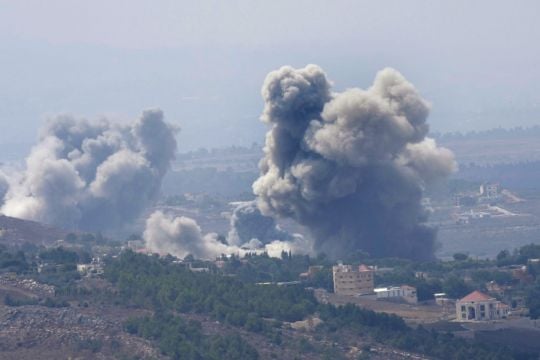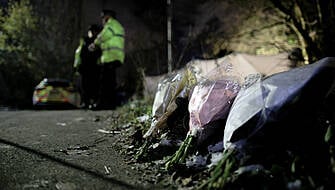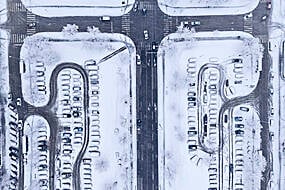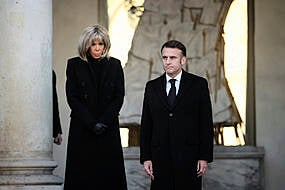Israeli strikes have killed more than 180 people in Lebanon in the deadliest and most intense barrage against Hezbollah in nearly a year.
The strikes came as the Israeli military warned residents in southern and eastern Lebanon to evacuate their homes ahead of a widening air campaign against the militant group.
Thousands of Lebanese fled the south, and the main route out of the southern port city of Sidon was jammed with cars heading toward Beirut in the biggest exodus since the 2006 Israel-Hezbollah war. More than 400 other people were injured in the strikes.
The Chief of the General Staff approves strikes on Hezbollah targets in Lebanon from the IDF Headquarters Underground Operations Center. So far, more than 300 Hezbollah targets have been struck today. pic.twitter.com/hbNKWJ8QAs
— Israel Defense Forces (@IDF) September 23, 2024
Advertisement
The Israeli military announced that it hit some 300 targets on Monday, saying it was going after Hezbollah weapons sites.
Some strikes hit residential areas of towns in the south and the eastern Bekaa Valley. One strike hit a wooded area as far away as Byblos in central Lebanon, more than 80 miles from the border north of Beirut.
The military said it was expanding the air strikes to include areas of the Bekaa Valley, along Lebanon’s eastern border.
Hezbollah has long had an established presence in the Bekaa Valley, which runs along the Lebanese-Syrian border, and it is where the group was founded in 1982 with the help of Iran’s Revolutionary Guards.
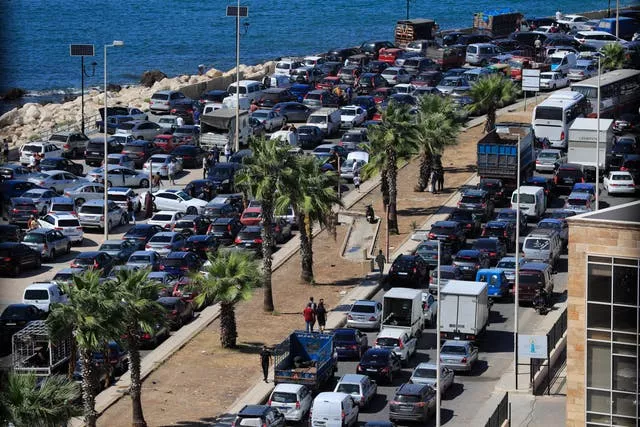
Israeli military spokesman Rear Adm Daniel Hagari said residents of the valley must immediately evacuate areas where Hezbollah is storing weapons.
Meanwhile, Hezbollah said it fired dozens of rockets at an Israeli military post in Galilee. It also targeted for a second day the facilities of the Rafael defence firm, headquartered in Haifa.
As Israel carried out the attacks, Israeli authorities reported a series of air-raid sirens in northern Israel warning of incoming rocket fire from Lebanon.
Earlier on Monday, Israel issued a broad warning urging residents of southern Lebanon to evacuate from homes and other buildings where it claimed Hezbollah has stored weapons.
It was the first warning of its kind in nearly a year of steadily escalating conflict and came after a particularly heavy exchange of fire on Sunday.

Hezbollah launched around 150 rockets, missiles and drones into northern Israel in retaliation for strikes that killed a top commander and dozens of fighters.
There was no sign of an immediate exodus from the villages of southern Lebanon, and the warning left open the possibility that some residents could live in or near targeted structures without knowing that they are at risk.
The increasing strikes and counter-strikes have raised fears of an all-out war, even as Israel is still battling Hamas in Gaza and trying to return scores of hostages taken in Hamas’ October 7 attack.
Hezbollah has vowed to continue its strikes in solidarity with the Palestinians and Hamas, a fellow Iranian-backed militant group.
Israel says it is committed to returning calm to its northern border.

Associated Press journalists in southern Lebanon reported heavy air strikes targeting many areas on Monday morning, including some far from the border.
Lebanon’s state-run National News Agency said the strikes hit a forested area in the central province of Byblos, about 81 miles north of the Israeli-Lebanese border, for the first time since the exchanges began in October.
No injuries were reported there. Israel also bombed targets in the north-eastern Baalbek and Hermel regions, where a shepherd was killed and two family members were wounded, according to the news agency. It said a total of 30 people were wounded in strikes.
The Lebanese Health Ministry put the death toll at 182. It asked hospitals in southern Lebanon and the eastern Bekaa valley to postpone surgeries that could be done later.
The ministry said in a statement that its request aimed to keep hospitals ready to deal with people wounded by “Israel’s expanding aggression on Lebanon”.
An Israeli military official said Israel is focused on aerial operations and has no immediate plans for a ground operation. The official said the strikes are aimed at curbing Hezbollah’s ability to launch more strikes into Israel.
